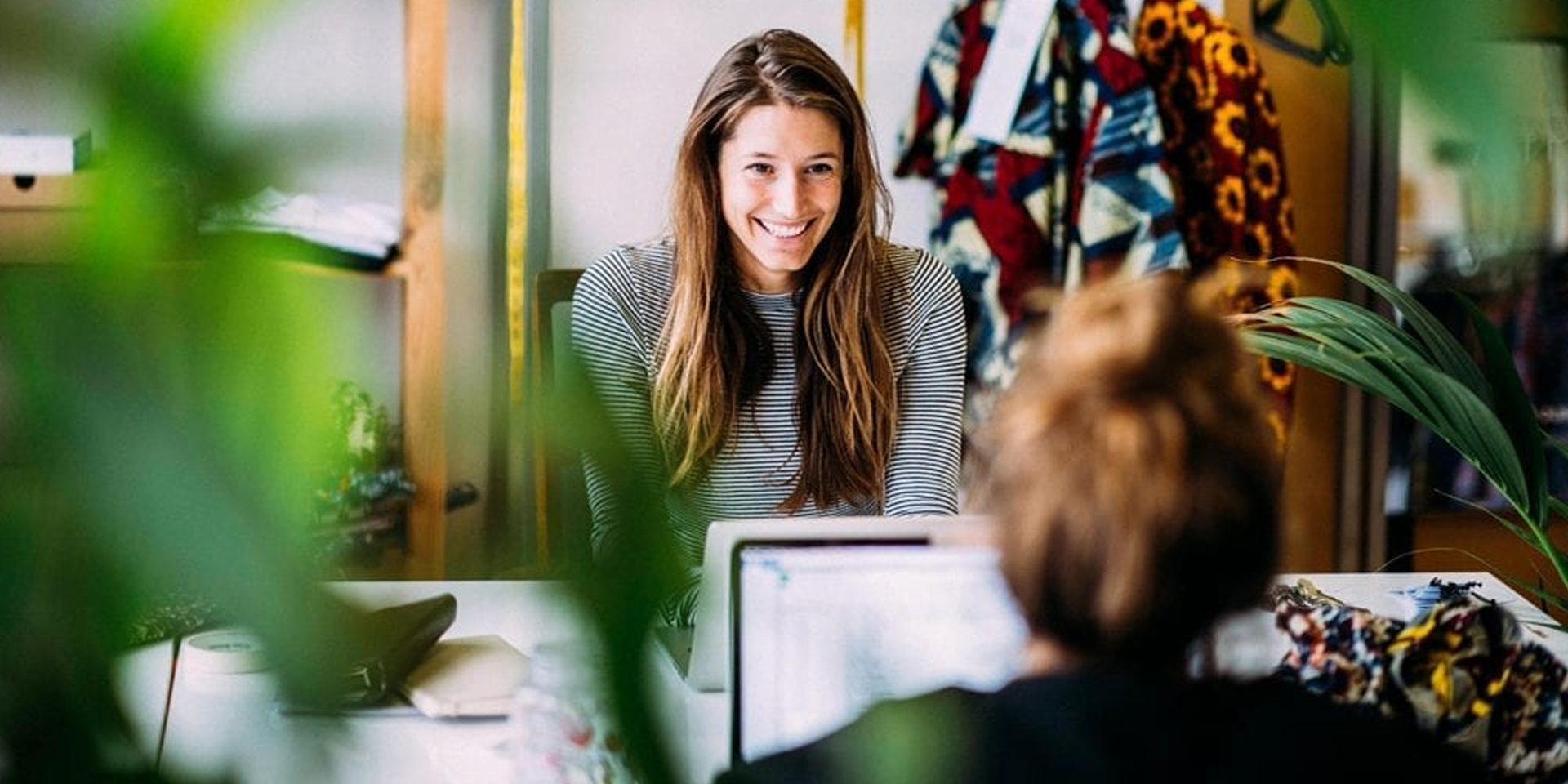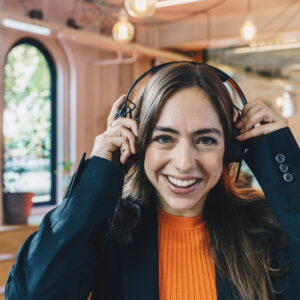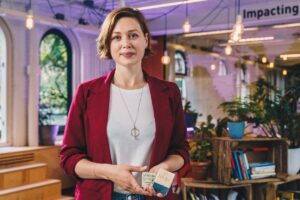Inclusive and Social Entrepreneurship

COMMUNITIES OF PRACTICE (CoP)
LIAISE has cooperation at its core. This works through international Communities of Practice (CoP) that will research and co-design the best practices through three approaches:
01. As a research centre to collect best practices
02. As an observatory to monitor inclusive entrepreneurship programmes.
03. As a thinking lab to explore the policy dimension.
FOR WHO?
For entrepreneurs that are passed the idea stage and want to grow their business. The LIAISE project works with a thematic CoP targeting to establish the needs for 5 distinct groups: Women, migrants/refugees, people with disabilities, youth (age 18-29) & seniors (age 65+).
WOMEN COP
Impact Hub Amsterdam is involved in the Women CoP, incorporating best practices and activities within incubation programmes to deliver a gender inclusive entrepreneur support programme and increase the overall visibility, credibility, and representation of women entrepreneurs. We are additionally working on increasing the visibility of female entrepreneurs through a series of interviews on social platforms.
Today, we’d like to introduce Sophie Jurrjens: a composer, DJ and creative entrepreneur from Amsterdam. Currently, she is developing the Off-Track app: by adding music to a walking route, going outside is transformed into an experience.
What made you decide against working for another company and starting your own?
My mother and my sister are both classical pianists and as long as I remember, I‘ve always been inspired by the way they filled their lives with something they are truly passionate about. Making music on their own terms: I would do the same when I would grow older.
Can you tell us about how you started your company and what you would do differently if you could?
Due to the coincidence of music suiting my environment perfectly, the idea for Off-Track was born. If I could go back in time I would stop procrastination – extra time did not help me to make decisions easier, it only made it harder.
How did you acquire the needed skills and knowledge to build up your business?
Absorbing as much knowledge as I can, wherever and whenever I am. Watching endless Youtube tutorials, doing an internship after graduating or applying for (women) startup competitions and excelerators such as the Boost je Buurt from Amsterdam Impact.
What are your goals for the future of your business?
There’s so much I still want to accomplish: I love fantasizing about the future. For Off-Track, I hope to be able to contribute to people’s lives all over the world by creating a moment of rest and happiness in their day. But first, launching the off-Track app this Summer in Amsterdam! More info on www.off-track.nl.

Today, we’d like to introduce Marlies van Heusden, the founder of Nature Bar. Nature Bar is soap and shampoo bars with a mission: inspire people to take better care of themselves and nature.
In what life situation did you decide about starting your own business?
In 2019, I quit my job to go backpacking through Latin America. I was fed up with overconsumption and wanted to get closer to myself and nature again. I can tell you, it worked out quite well ;).
In a small shop in Mexico – full of dried herbs and gemstones – I was looking for calendula ointment for my mosquito bites. However, I found handmade calendula soap, with real petals.
This inspired me to use the healing powers of calendula in my soap. The rich natural oils made my skin healthy again and unnecessary to use other products such as body lotion. A small bar of soap replaced several large plastic bottles.
Was there a time during the process of building up your company that you were struggling or doubting about what you are doing? How did you manage to get over this challenge?
Starting a business without any funding is challenging. So the first year was all about bootstrapping, how can I be creative and achieve a goal without spending a lot of money. In essence, how can I do a lot with little. Which really suits me and Nature Bar.
Plus, I really like the lean startup method. Don’t over analyze, sometimes you just need to test things out and go from there.
What would you recommend to other female entrepreneurs who want to start their own business on how to get their business started?
Gather likeminded female entrepreneurs around you. Plus share your idea with them! You will be surprised how many people want to help you.
What is your life motto? Would you say it can be related to your position as an entrepreneur?
“I have never tried that before, so I think I should definitely be able to do that.” Pippi Longstocking.
I think we could all canal our inner Pippi Longstocking more. But especially as an entrepreneur it can be really helpful. Being an entrepreneur means you need to be bold, make a lot of decisions and stand for what you believe in. So when in doubt “I have never tried that before, so I think I should definitely be able to do that.”
Can you please introduce yourself, who are you and what do you do?
I am Hanna Sundermeier from Germany, I am currently working on the Good Registry, it is an app to make it easier for people to accept help.
What made you start this company?
I saw during the pandemic that a lot of people were struggling, specifically with mental health.
We found that a lot of people find it significantly easier to say what they need help with when they have a suggestion – because they see that it is a normal thing to ask help for. Because the hardest part is accepting help. Nobody wants to need it. The Good Registry is a technical solution to navigate through all the sensitive parts of accepting help.
In which stage is your company?
I am in the development stage. I am currently looking for funding and growing the team.
What would you recommend to other female entrepreneurs who want to start their own business on how to get their business started?
How you present your product and company is essential, confidence plays
a big part in this. Women tend to be less comfortable (due to socialization) with big claims and confidence so this is something to counteract.
How would you describe being an entrepreneur in 3 words?
Exciting, challenging, connecting!
Especially when you start, there is a lot of support coming from anywhere and people are thinking along. The moment you start telling people about your idea, they immediately start brainstorming. Everybody wants to contribute and is really excited about connecting you to others. I think that this kind of enthusiasm might be unique to social entrepreneurship.
FEMALE ENTREPRENEURSHIP EMPOWERMENT | Bias against female entrepreneurs and what they can achieve is still everywhere. Let’s prove it wrong!
As part of our projects WeRin and LIAISE, we will put a spotlight on our female founder alumni and their successes. Today, we’d like to introduce to you Monique Drent, founder of The Swapshop.
Monique Drent is one of the two founders of the Swapshop, an organisation that focuses on reducing the overconsumption of fashion.
Was there a time during the process of building up The Swapshop that you were struggling? How did you manage to get over this challenge?
In my experience, building up a startup brings a lot of challenges. For example, we struggled with how to approach the overconsumption of fashion. After creating a profitable business model around our project, we realized that if we really want to grow in the long term we need funding. After we got the funding we had to close 1 shop because of the pandemic. And a lot of challenges followed since then.
When we face a challenge, we try to take it lightly and with humour – then you automatically have the energy to swim to the coast again. The challenges teach us so much: what works, what our weaknesses are, and how to become a better person and entrepreneur. And we dare to take risks, you just have to trust yourself that you can make it.
What do you think would make more women start their own business?
If you have an idea, just start, even if you don’t know how or if you don’t have the money to start it or it doesn’t look in your mind yet how you want it; start spreading around the fact that you started and just continue! So many things along the way go wrong and there are so many challanges, but the only way to go through, is to keep believing in yourself and just continue finding a way.
What is your life motato (that also can be related to your position as an entrepreneur)?
Being clear is being kind, and being unclear is being unkind.
– Brenée Brown
Today, we put a highlight on Amit, founder of Mimo Cookies.
How did you come up with the idea to start Mimo Cookies?
During the pandemic I found this recipe for vegan chocolate chip cookies from a bakery in New York. I posted on Facebook that I am selling vegan cookies package free and I had so many people ordering that I was cycling all around Amsterdam. For a university course, I started writing a business plan with 5 other people on my idea about this cookie company. We were thinking about how we can get these cookies fresher to the end consumer. Finally, the idea of pre-portioned, frozen, ready to bake cookies for retail stores.
What would you recommend to other female entrepreneurs who want to start their own business?
Just go for it! That’s the best way to learn about yourself if you are really able to manage and run a business. At least for me I had a lot of doubt at first and I think what really helped me was having a lot of people that encouraged me to just go for it and care less about what people think.
Also, for someone who wants to start their own business in the food industry, I’d recommend having some background knowledge in business. For example, I study Food Product Development where I learn the ins and outs of the supply chain, food safety, how to write a hazard plan, and knowing the difference between having your own production facility and outsourcing. However, it does not teach you what you need to implement to make a business succeed, run or start, so that is something you only learn by doing.
What has been your biggest challenge when starting Mimo Cookies?
Practically speaking, the production process has been one of the biggest challenges because I went from a very small scale to trying to do something on a very large scale. So, I had to change the production method. Now, we produce in a production facility and we share it with another food startup company.
PARTNERS & APPROACH
LIAISE is funded by the EU Programme for Employment and Social Innovation (EaSI) under the initiative of the Impact Hub network, The European Business and Innovation Centre Network (EBN) and the European Venture Philanthropy Association (EVPA). Together with these project partners, we aim to create the Better Incubation Toolkit, a versatile kit for further dissemination of the capacity building process within the sector.
IMPACT HUB & INCLUSIVITY
Find the latest updates, events and publications from our inclusivity ecosystem HERE >